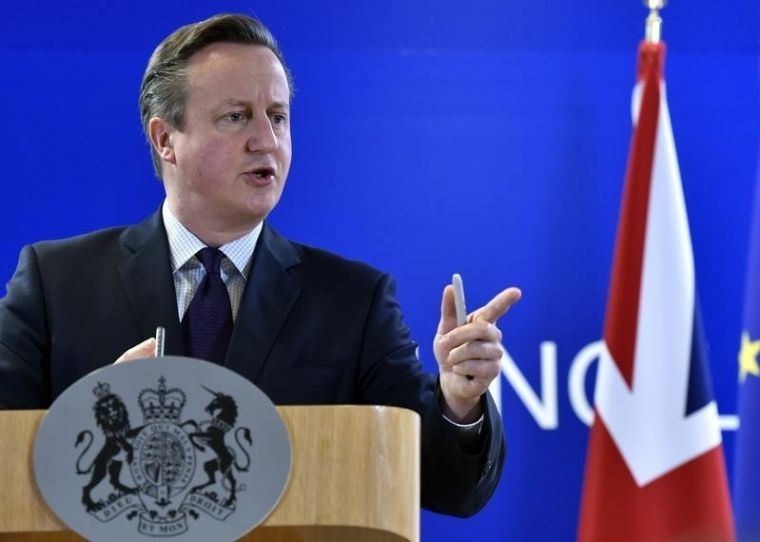EU reform: Christian think-tanks on whether Cameron has done enough
David Cameron launched a defence of his draft reform deal with the European Union this afternoon in a bid to persuade MPs in his own party and the public to vote to stay in the bloc.
As the Prime Minister faced hostile questions from all parties over his renegotiation package, which is yet to be agreed by the other EU nations, Christian Today spoke to leading Christian think-tanks on their view of the deal.

"It's a deal guaranteed to not please anyone," said Theos' Ben Ryan, who authored a recent report on the EU entitled A Soul for the Union.
Ryan argued it was not good enough to simply make an economic case to remain in Europe. He suggested that is a "weak basis for political union" and instead said Europe must "develop a clearer, explicit moral purpose that resonated with its citizens".
"If the EU is going to be worth saving it needs to discover a soul," he said.
However he acknowledged Cameron was "actually doing quite well" in meeting his negotiation aims.
"He's done well, and yet, it will seem like he's failed," Ryan told Christian Today this afternoon, explaining that "Eurosceptics were probably never going to be appeased".
"They are probably right that the red card makes little substantive difference (if you need 55 per cent of other members to support you then it's probably a policy that would never have passed anyway).
"In practice there has not been a great regaining of sovereignty – nor was that ever really on the table. I doubt this deal will do anything to win back Eurosceptics already committed to leaving."
However pro-Europeans won't be pleased either, according to Ryan, because "there is nothing to get excited about".
Ultimately, he said, Cameron had failed because there was no sense of moral vision or purpose.
"As with the whole debate there's no vision, or sense of anything positive about the future of Europe. It seems like treading water and relying on the economic argument, and I'm not sure that's ultimately good enough."
However Guy Brandon, research director at the Jubilee Centre, a Christian social reform think tank, held a different perspective. He said his main concern was not the overall vision of the reform, but rather its treatment of migrant workers.
The deal published yesterday by Donald Tusk, European Council President, would allow an "emergency brake" on migrant workers' ability to receive benefits if it could be proven high levels of migration were putting an extreme strain on public services.
Brandon told Christian Today he "didn't like" this aspect of the deal because it conflicted with the "biblical principle... that if someone has come to the country, integrates, works and contributes to your society, then they should be treated like everyone else".
"The concern is that it creates a class of second-class citizens," he said. "You could have two people, living next door in identical houses, doing the same job, with the same family circumstances, contributing exactly the same in terms of taxes – but one of them doesn't receive benefits because they were born abroad. That doesn't send a good message."
Cameron will travel to a Europe summit on 17-18 February and attempt to persuade other EU states to accept the deal. If passed by the European parliament, it is likely a referendum will be held in June this year.











